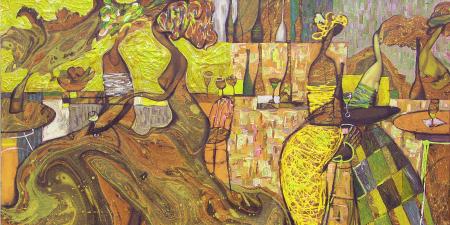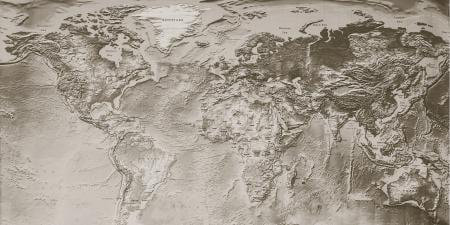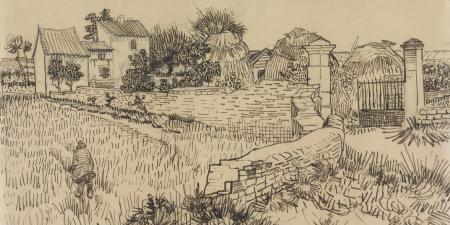Case
Phil is a third-year medical student at a northeastern university. During the summer between his second and third year, he was selected to go to El Salvador with a team of surgeons who staff a rural clinic for two weeks twice a year.
Phil thought that his main activity would be shadowing the surgeons. The clinic, however, was extremely busy with the doctors seeing hundreds of patients a day. On Phil’s first day, one of the surgeons gave him a white coat and told him to introduce himself as “doctor.” He saw patients by himself and, with his fairly fluent Spanish or through translators, gained their consent for surgical procedures. In the operating room, after a brief introduction to suturing and sterile technique, Phil was given the responsibility of prepping the patients before surgery and suturing the incisions afterward. The surgeons were usually out of the room while he performed these functions.
At first, Phil was thrilled to be getting such experience at so early a stage in his training. In the United States, that kind of responsibility was usually reserved for second- and third-year surgery residents. But after a patient he had prepped for surgery returned with a wound infection, Phil looked at the situation differently.
He asked one of the surgeons at the clinic if it was appropriate for him to be performing functions on patients in El Salvador that he would not be allowed to perform on patients in the United States. The surgeon replied, “Relax, the rules here are different than at home. No one tells us what to do here. Besides, if you didn’t help us out, we wouldn’t be able to see as many patients and some people wouldn’t get the help they need. Is it better for the patient to get less expert care or no care at all?”
Commentary 1
Few would contest the claim that the rise in popularity of medical volunteerism is commendable and represents a heightened awareness of health care inequities, both domestic and international, on the part of medical professionals. Cases such as this one illustrate common challenges facing physicians-in-training who are working in international settings, and they should stimulate careful consideration of ethical, legal and practical aspects of care provision in international contexts.
Physicians and medical trainees volunteering in international developing communities commonly encounter environments starkly different from those of their native countries. Challenges facing these caregivers are myriad: linguistic, cultural and gender barriers in patient-physician communication; a paucity of health care resources and basic supplies; diverse and unfamiliar conceptions of disease and health; low levels of literacy; and confrontation, usually for the first time, with abject poverty that limits the ability of patients to prioritize and dedicate resources to health problems. Coming face-to-face with these significant barriers is a necessary but often uncomfortable part of the volunteer physician’s experience. Added to these challenges are the struggles of trainees who must confront the limits of their abilities or confidence while serving patients who are naive about their caregivers’ uncertainty and often possess blind faith in doctors and medical personnel.
Phil’s experience is one to which many physicians and medical students can relate, yet the specific circumstances are made more challenging by their international context. Students commonly report discomfort with being identified as “doctor,” a term which elevates them to the level of more experienced colleagues and may unfairly raise patient expectations regarding their abilities and knowledge base. Nearly every medical trainee can recount instances of performing procedures for the first time on a trusting patient in contexts of minimal supervision. Asking for supervision in such instances can be awkward or even impossible, since heavy clinical volume and power hierarchies may make more senior physicians inaccessible. In settings with ample resources, challenges like these are remediable through actions as simple as yelling for help. The assumption that help will be available in an instant, and the very construct of calling a “code,” can be viewed as luxuries of medicine in developed countries.
It is a cruel irony that medical trainees working in developing communities may find themselves elevated to levels of heightened responsibility precisely at the times when their potential errors may be the least remediable. The arguments Phil confronts that “rules here are different than at home” and “if you didn’t help us [no one would]” are uncomfortable to the trainee and cannot be justified on ethical grounds. In practice, however, arguments such as these are used on a daily basis to justify delivery of medical services in developing countries by students, trainees or volunteers. Countries in which voluntary services are commonly provided generally lack specific laws regarding scope of practice or supervision for international medical volunteers, and no international code of medical ethics exists to guide the specific practices (in challenging circumstances) delineated in the current case.
The American Medical Association’s Code of Medical Ethics articulates several opinions that relate to the current case. Opinion 8.087 regarding medical student involvement in patient care states that “students and their supervisors should refrain from using terms that may be confusing when describing the training status of students” [1]. By this standard, Phil’s supervising physicians misrepresented him in a manner that was both untruthful to patients and uncomfortable to Phil. Opinion 8.088 regarding resident physicians’ involvement in patient care states that “training must be structured to provide [trainees] with appropriate faculty supervision… with graduated responsibility relative to level of training and expertise” [2]. Clearly, such supervision was not available to Phil, yet the extreme circumstances of the case make transgression from ethical guidelines difficult to critique.
Inasmuch as the overarching purpose of both legal and medical ethical guidelines is and should be the protection of patient and physician safety and well-being, it is unclear how lines of responsibility should have been delineated for and by Phil in the current case. That Phil should have refused to participate in tasks which he believed he was unqualified to perform independently, such as skin closure after surgery, is a valid perspective, but it is also valid to argue that Phil’s supervising physicians were entrusted with (and failed) the charge of supervising him more closely and helping to delineate tasks which a student at his level could reasonably and safely perform. In the United States, Phil’s responsibilities and supervision in the operating room setting would have been quite different.
The very existence of the AMA’s Code of Medical Ethics as a living and evolving corpus to guide the ethical practice of medicine is an invaluable asset to the global community of medicine. Whether one agrees or disagrees with specific aspects of the Code is not as important as the concept that the medical community can and must preserve its own professionalism. Codes of medical ethics can and should be debated and revised over time in response to new demands of a complex world.
The challenge of adherence to ideal ethical guidelines in emergent or extreme situations such as those illustrated by this case is real, however, and deserves greater scrutiny. Debates generated by such attention may result in the formulation of specific legal and ethical guidelines to direct and facilitate the practices of international medical volunteers.
Greater awareness of the challenges and rewards facing medical volunteers must also be stimulated by physicians, nongovernmental organizations and the lay press to prepare future generations of health care volunteers for the complexities of their chosen roles. Physicians today are both health care professionals and participants in a global civil society, and a careful analysis of both the demands and limitations facing medical volunteers is critically necessary.
References
-
Opinion 8.087 Medical student involvement in patient care. Code of Medical Ethics 2008-2009 ed. Chicago, IL: American Medical Association; 2008:256
-
Opinion 8.088 Resident physicians’ involvement in patient care. Code of Medical Ethics 2008-2009 ed. Chicago, IL: American Medical Association; 2008:256-257



